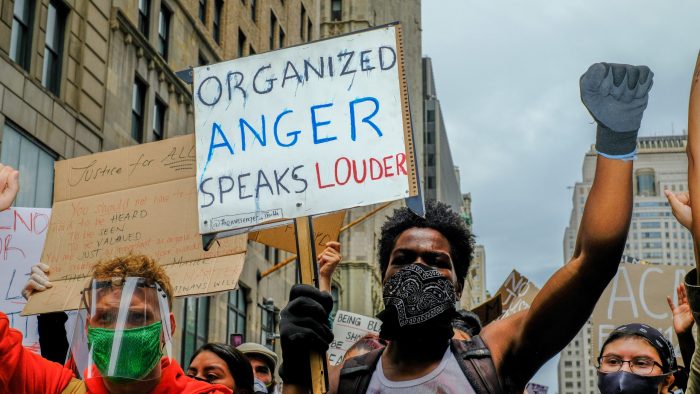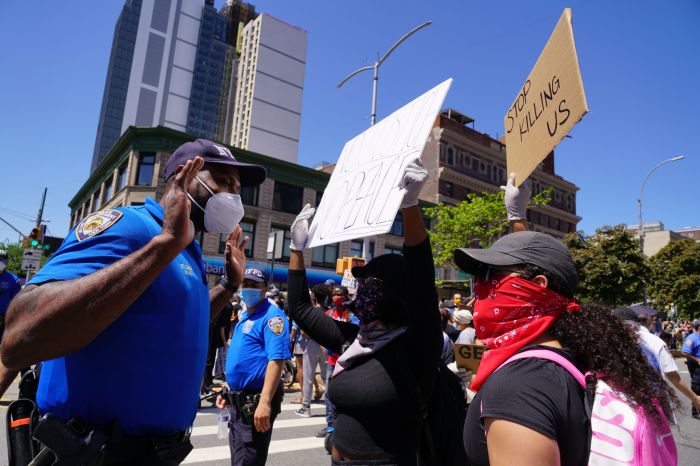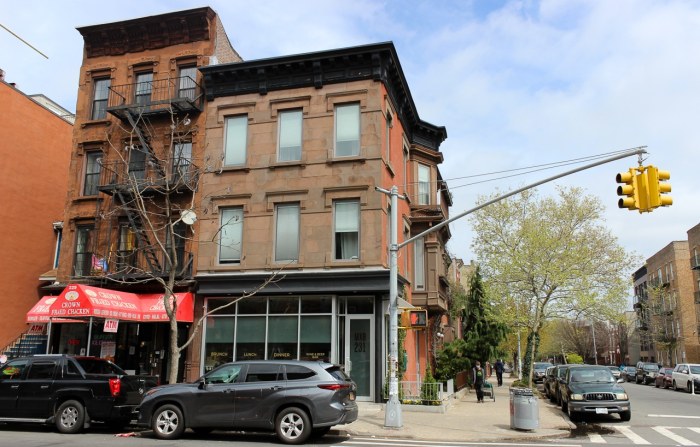In this moment, New Yorkers are looking for solutions to violence and the recent election made clear we won’t be tricked by the same old bait-and-switch that many politicians love to play on us.
While they tried to tell us the answer is more of the failed and unjust mass incarceration policies that brought us to this moment, we said that we need real and effective approaches that uplift and protect communities of color rather than repress us. I won’t pretend to have all the answers, but I have one.
Christopher Simmons is an expert in conflict resolution and anti-violence education with years of success in the field. He has worked to assist people who are visually or hearing-impaired. He has a particular expertise in working with people with mental illness and people who are soon to be released from prison. He even works in English, Patois, and American Sign Language.
He has the potential to uplift countless people across our city – in our schools, in our housing developments, in our streets, and beyond.
There’s just one obstacle – but it’s a big one.
Christopher is currently serving his 26th year in prison, with another eight years to go before the state will even consider him for release. He’s 50 years old, which means two things: The good news is the data is clear that people of his age who have already served long sentences almost never commit another crime or return to prison. And that’s especially true for people, like Christopher, who got college degrees behind bars.
The bad news, sadly, is that his sentence leaves him with his first chance to come home at 58 – which happens to be the average age of death by so-called natural causes in New York State prisons. As his wife, I cannot let that happen. As New Yorkers who value fairness and safety, none of us should.
More than a quarter century ago, Christopher committed a crime for which he takes full accountability. There is no doubt in my mind that he was over-sentenced, like so many in prison, but regardless of the morality of the legal system, he knows what he did was wrong and he lives every day with the shame of his actions.
That remorse, coupled with years of reflection and mentorship from college professors and elders in the prison who came before him, is what drives him every day to stop the cycles of crime that afflict communities across the state. It drove him to commit to transforming himself, and to obtain an Associate’s Degree and he’s one semester away from completing his Bachelor’s Degree at the elite Hudson Link program, which has a zero percent recidivism rate.
Christopher has had an exemplary disciplinary record for a decade. For eight years, he served as President of the Inmate Liaison Committee at Sullivan Prison – an elected advisory committee that works to identify solutions to concerns of the prison population and advocates for change with the prison administration.
Some people reading this may wonder: Is Christopher really ready to come home? Well, actually he facilitates the Transitional Services program guiding others in their re-entry. He’s basically a resident expert on the subject.
Of course, Christopher is more than his resume. He’s naturally funny and optimistic. He has an uncanny memory of the specific years of all the movies and songs that he grew up with. His love of life – his love of people – are what drive him to continue to better himself.
That inborn hope was stoked last year when Governor Hochul announced that she would be granting clemencies on a rolling basis. We all believed that she would be different than the men who occupied the office before her – and we still believe she can deliver.
Not just for Christopher, but for all of the many women and men behind bars who have applied for clemency – many of whom have done more to mentor young people and stop cycles of violence than any so-called law-and-order politician – and for all of the families and friends across the state who are desperate to welcome them with great big bear hugs.
For so many of us, atop our wishlists this year isn’t a new gadget or a new kitchen set. We want a new beginning – for our loved ones, for our communities, which have been torn apart by mass incarceration, and for our state, which slumps under the tremendous financial and emotional burden of a system that leaves people to grow old and get sick behind bars.
If Chris and so many like him can make such deep transformations, I know New York State can, too.
Eva Santiago is a mentor at Bronx Connect, working with high-risk young people on probation and an advocate with the Release Aging People in Prison Campaign


















